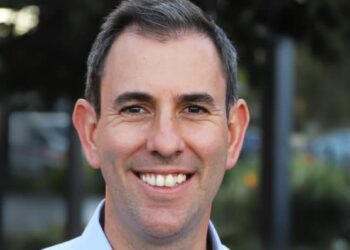Throughout the election campaign so far, the two major parties have clashed over superannuation tax, with each party taking a very different approach with its policies.
Labor plans to make some major changes including the removal of refundable franking credits, adjustments to superannuation concessions and a ban on SMSF lending, while the Liberal Party has announced it will make tweaks to the contribution rules and exempt current pension income.
If Labor does win the election, it intends to remove cash refunds for excess dividend imputation credits from 1 July this year.
Based on the Parliamentary Budget Office, the measure is estimated to impact 840,000 individual taxpayers, 210,000 SMSFs and 2,300 APRA-regulated funds, including industry and retail funds. It has announced an exemption for recipients of government pensions or allowances.
A survey conducted by Wilson Asset Management with 4,000 respondents found that if the policy is legislated, 50 per cent of the respondents will reduce their investment in Australian shares and invest more in global equities. It also found that 29 per cent will invest in other asset classes such as real estate.
Around 20 per cent in the survey also indicated they would spend their assets in order to qualify for the age pension.
Opposition Leader Bill Shorten has previously stated that the $58.2 billion in revenue it expects to generate from its dividend imputation policy will be used towards its plan for pensioner dental care, its $2.3 billion Medicare cancer plan and childcare subsidies.
Under the pensioner dental plan, Labor has stated that age pensioners and Commonwealth Seniors Health Card holders will be able to access $1,000 worth of dental services every two years.
Labor has also announced a raft of changes to superannuation concessions, including contributions.
It plans to cut the non-concessional contribution cap to $75,000. This would also result in the three-year bring-forward amount being reduced to $225,000.
It has also announced that it intends to reinstate the 10 per cent test for claiming deductions for personal super contributions, which would effectively limit the ability to claim a deduction for personal superannuation contributions to those who earn most of their income from business income.
It has also announced that it will ban SMSFs from entering into new limited recourse borrowing arrangements.
The Liberal Party, on the other hand, plans to proceed with its measure to increase the SMSF member limit as an election policy, despite the removal of the measure shortly before Parliament was dissolved.
It also announced an amendment in the budget which will enable Australians aged 65 and 66 to make voluntary superannuation contributions even if they do not meet the current work test requirement to work at least 40 hours over a 30-day period in the year they seek to make contributions.
Prime Minister Scott Morrison has also guaranteed “no new taxes on superannuation”. However, there is no specified time frame for this promise.
The Liberal Party implemented most of its major changes to superannuation as part of the 2016 budget when it introduced the transfer balance cap, changes to contribution caps and the $500,000 lifetime cap for non-concessional contributions, which was later dropped.
While the policies of the two major parties have been covered extensively, one of the great unknowns with this election is the possibility of a minority government, and what role independents will play in shaping tax and superannuation policy after the election.
Wealth Digital technical manager Rob Lavery said that a “minority government is not beyond the realms of possibility”, and a Senate controlled by crossbenchers seems probable.
“The next government may need to compromise to get its most valued policies through the legislative process,” said Mr Lavery.
For detailed analysis on each major party’s plans for superannuation and SMSFs, you can read more here.
To find out how the election result will impact you as an SMSF professional and your clients next week, register for our post-election webcast.



If the franking credit refund denial and trust 30% tax rate do get up, I can see a lot of restructuring work for tax lawyers. While one is always willing to assist taxpayers deal with structural tax issues, Labour’s policies are idiotic tax policy and will drive a lot of investment funds out of Australia. They will not get the money they are counting on. Many people will close down SMSFs and save on admin costs, avoid the self dealing rules etc and do better elsewhere. It is all very short sighted and I am sorry they want to make more work for tax lawyers. It once again confirms my view that there are only two classes of taxpayer – and they are not the rich and the poor: they are are the well-advised and the rest.